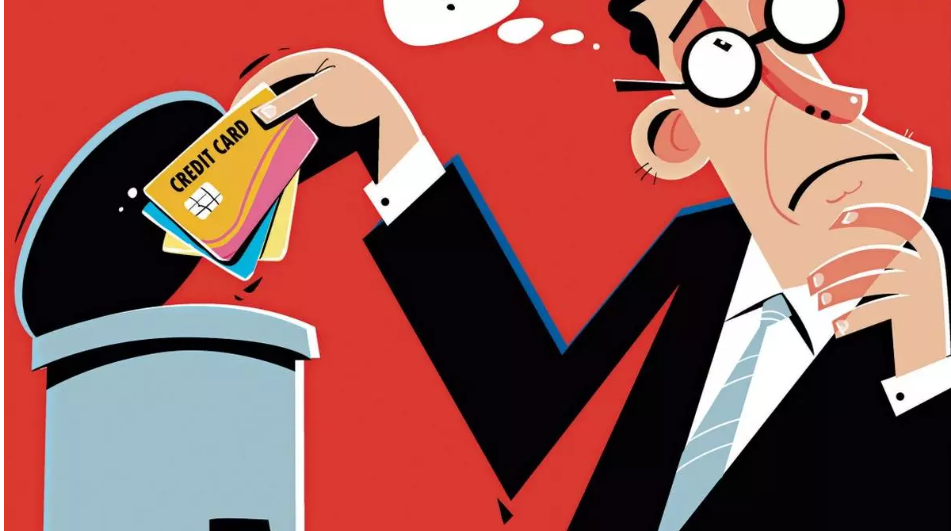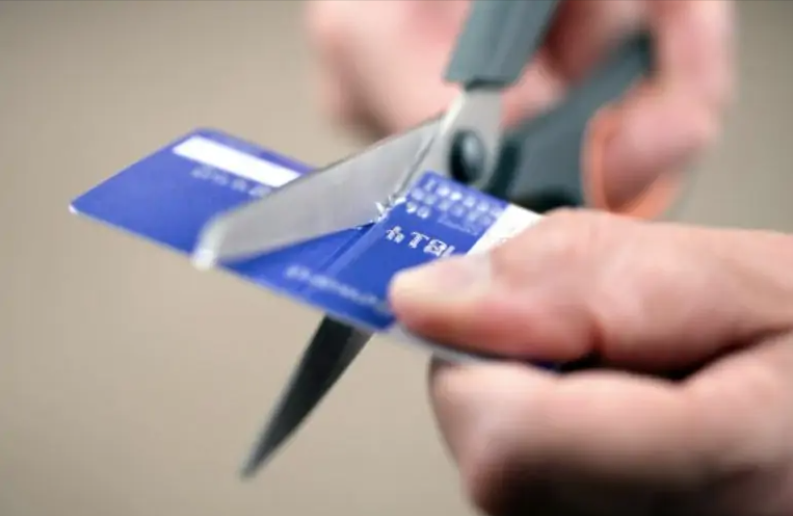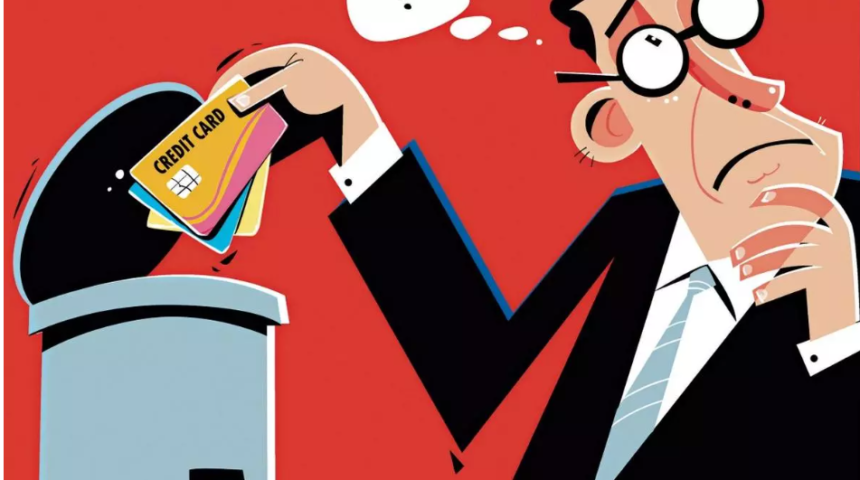Unused Credit Cards today’s fast-paced financial landscape, credit cards have become an essential tool for managing expenses, building credit history, and enjoying various rewards and benefits. However, as financial habits evolve, many individuals find themselves holding onto unused credit cards. The question arises: should you bin your unused credit cards, or is there value in keeping them? This article delves into the implications of closing unused credit cards, exploring the impact on credit scores, credit utilization ratios, and overall financial health. By understanding the pros and cons, you can make informed decisions about your credit card management.
Understanding Credit Cards and Their Function
Credit cards offer consumers a convenient way to make purchases, pay for emergencies, and earn rewards. They work by allowing individuals to borrow money up to a certain limit, which must be repaid, usually within a monthly billing cycle. Responsible use of credit cards can lead to numerous benefits, including:
- Building Credit History: Credit cards are one of the primary ways to establish and build a credit history. Responsible use, including timely payments and maintaining a low balance relative to the credit limit, can positively impact your credit score.
- Rewards and Benefits: Many credit cards come with rewards programs that allow users to earn points, cash back, or travel miles on their purchases. Additionally, some cards offer perks such as travel insurance, extended warranties, and purchase protection.
- Emergency Funds: Having an available credit line can serve as a safety net during emergencies when unexpected expenses arise.
Despite these advantages, individuals often accumulate unused credit cards over time, leading to the dilemma of whether to keep or close them.  For the more information click on this link
For the more information click on this link
The Pros of Keeping Unused Credit Cards
- Higher Credit Limit: Keeping unused credit cards can help maintain a higher overall credit limit. This is beneficial because it contributes to a lower credit utilization ratio, which is a key factor in determining your credit score. A lower utilization ratio indicates to lenders that you are not overly reliant on credit, which can enhance your creditworthiness.
- Credit History Length: The length of your credit history accounts for a portion of your credit score. Keeping older accounts open, even if they are not in active use, can positively impact this aspect of your credit score. Closing older accounts may shorten your credit history, potentially lowering your score.
- Potential Rewards: If the unused credit card has a rewards program, it may still be worthwhile to keep it, especially if you can use it occasionally to keep the account active. This can help you continue to earn rewards without relying on the card for everyday expenses.
- Backup Options: In the event of lost or stolen cards, having additional credit cards can provide backup payment options. This can be especially important when traveling or during emergencies.
The Cons of Keeping Unused Credit Cards
- Risk of Fraud: Unused credit cards may be more susceptible to fraud if they are not monitored regularly. If a card is compromised, you may not notice it until it’s too late, potentially leading to unauthorized charges.
- Annual Fees: Some credit cards come with annual fees, even if you are not using them. If the fees outweigh the benefits you receive, it may be more economical to close the account.
- Impact on Credit Decisions: Lenders consider your total credit accounts when assessing your creditworthiness. Having too many unused accounts can raise red flags for some lenders, leading to potential denials for new credit applications.
- Psychological Clutter: For some individuals, maintaining multiple unused credit cards can feel overwhelming and lead to poor financial management. Simplifying your accounts by closing unused cards can create a clearer financial picture.
The Impact of Closing Unused Credit Cards
When you decide to close an unused credit card, several factors come into play:
- Credit Utilization Ratio: Your credit utilization ratio is calculated by dividing your total credit card balances by your total credit limits. When you close a credit card, your total available credit decreases, which can increase your utilization ratio if your overall debt remains the same. A higher utilization ratio can negatively impact your credit score.
- Example: If you have two credit cards with a combined credit limit of $10,000 and a balance of $2,000, your utilization ratio is 20%. If you close one card with a limit of $5,000, your new total limit drops to $5,000, and your utilization ratio rises to 40% (still with a $2,000 balance), which may harm your credit score.
- Length of Credit History: Closing older accounts can shorten your credit history, potentially lowering your credit score. Credit scoring models generally favor longer credit histories, as they provide lenders with a more comprehensive view of your borrowing behavior.
- Credit Score Changes: Closing a credit card can lead to a temporary drop in your credit score, particularly if it significantly alters your utilization ratio or shortens your credit history. This can be concerning if you are planning to apply for new credit in the near future.
Strategies for Managing Unused Credit Cards
If you are unsure about whether to keep or close unused credit cards, consider these strategies:
- Evaluate Your Financial Goals: Assess your short-term and long-term financial goals. If you are planning to make a significant purchase, such as a home or car, it may be beneficial to keep your unused cards to maintain a strong credit profile.
- Monitor Your Accounts: If you choose to keep unused credit cards, regularly monitor your accounts for any suspicious activity. Consider setting up alerts for transactions or changes in your account status.
- Use Cards Occasionally: To keep your unused credit cards active and avoid account closure due to inactivity, consider making small purchases periodically. This can help maintain your account in good standing and contribute positively to your credit history.
- Negotiate Fees: If you have a card with an annual fee, consider contacting the issuer to negotiate a fee waiver or a lower rate. Some credit card companies are willing to accommodate loyal customers.
- Know Your Credit Limits: Keep track of your total credit limits and balances across all cards. This awareness can help you manage your credit utilization ratio effectively and avoid unintentional overspending.
 For the more information click on this link
For the more information click on this link
When to Consider Closing Unused Credit Cards
While there are valid reasons to keep unused credit cards, there are also scenarios where closing them may be more advantageous:
- High Annual Fees: If a credit card carries a high annual fee without offering substantial rewards or benefits, it may be wise to close it, especially if you are not using it.
- Financial Discipline: If having multiple credit cards tempts you to overspend or complicates your financial management, simplifying your accounts can promote better budgeting and financial discipline.
- Improving Your Credit Profile: In some cases, closing unused cards can help improve your credit profile by eliminating potential fraud risks and reducing the number of accounts lenders review during credit applications.
Conclusion
The decision to bin unused credit cards is not one to be taken lightly. While there are advantages to keeping them, such as maintaining a higher credit limit and a longer credit history, there are also valid reasons to consider closing them. Understanding the impact on your credit utilization ratio, credit score, and overall financial health is crucial in making an informed choice.
Ultimately, the best approach depends on your individual financial situation and goals. By evaluating your needs, monitoring your accounts, and practicing responsible credit management, you can navigate the complexities of credit cards and make decisions that align with your financial well-being. Whether you choose to keep or close your unused credit cards, being proactive and informed will help you maintain a healthy credit profile and achieve your financial objectives. ALSO READ:- ‘Nobody Wants This’ Series Review: Kristen Bell and Adam Brody Keep You Hooked to This Sweet if Shallow Rom-Com 2024






mostbets http://mostbet6006.ru/ .
1вин партнерка familyclub.borda.ru/?1-6-0-00002163-000-0-0-1743051813 .
мостбет зеркало http://mostbet6006.ru/ .
1win.pro https://familyclub.borda.ru/?1-6-0-00002163-000-0-0-1743051813 .
1win online http://1win6001.ru .
служба поддержки мостбет номер телефона https://mostbet6006.ru/ .
1вин официальный мобильная http://1win6001.ru/ .
мостюет https://mostbet6006.ru .
1 вин про http://www.1win6001.ru .
1win com 1win com .
1win ваучер 1win ваучер .
1 win официальный сайт вход https://www.1win6001.ru .
1вин войти https://balashiha.myqip.ru/?1-12-0-00000437-000-0-0-1743258848 .
1 win.com http://1win6049.ru/ .
1win кейсы https://balashiha.myqip.ru/?1-12-0-00000437-000-0-0-1743258848/ .
1вин партнерка https://1win6049.ru .
1вин кг http://balashiha.myqip.ru/?1-12-0-00000437-000-0-0-1743258848/ .
1win официальный сайт войти alfatraders.borda.ru/?1-0-0-00004932-000-0-0-1743258210 .
1win бк http://balashiha.myqip.ru/?1-12-0-00000437-000-0-0-1743258848 .
1 вин. https://www.1win6049.ru .
1winn 1win6049.ru .
1winn 1winn .
1win прямой эфир http://www.alfatraders.borda.ru/?1-0-0-00004932-000-0-0-1743258210 .
win 1 http://alfatraders.borda.ru/?1-0-0-00004932-000-0-0-1743258210 .
казино онлайн kg https://www.svstrazh.forum24.ru/?1-18-0-00000136-000-0-0-1743260517 .
1вин кг obovsem.myqip.ru/?1-9-0-00000059-000-0-0-1743051936 .
мос бет https://www.svstrazh.forum24.ru/?1-18-0-00000136-000-0-0-1743260517 .
1win. com http://obovsem.myqip.ru/?1-9-0-00000059-000-0-0-1743051936/ .
скачать мостбет http://svstrazh.forum24.ru/?1-18-0-00000136-000-0-0-1743260517 .
mostbet kg скачать на андроид mostbet kg скачать на андроид .
официальный сайт 1 вин https://www.1win6050.ru .
win 1 https://obovsem.myqip.ru/?1-9-0-00000059-000-0-0-1743051936/ .
1 vin https://obovsem.myqip.ru/?1-9-0-00000059-000-0-0-1743051936/ .
1wiun http://www.1win6050.ru .
1win личный кабинет http://1win6050.ru .
1вин официальный сайт 1вин официальный сайт .
1win регистрация https://www.1win6051.ru .
1вин сайт официальный http://1win6051.ru .
1win партнёрка https://1win6051.ru/ .
1wiun https://1win6051.ru/ .
1вин официальный сайт https://1win6052.ru .
1win скачать последнюю версию https://1win6052.ru .
скачать мостбет скачать мостбет .
1wi http://www.1win6052.ru .
игра ракета на деньги 1win https://www.1win6052.ru .
мостбет скачать андроид https://www.mostbet6029.ru .
1 win.com http://1win6053.ru .
официальный сайт 1win https://www.1win6053.ru .
1вин про https://1win6053.ru .
1вин кыргызстан http://www.1win6053.ru .
1win metode de plată http://www.1win5011.ru .
1win moldova 1win moldova .
1win молдова 1win молдова .
pariuri sportive moldova https://1win5011.ru/ .
служба поддержки мостбет номер телефона https://mostbet6012.ru .
мостбет промокод mostbet6012.ru .
1wln http://1win6009.ru .
ванвин 1win6009.ru .
1win букмекер 1win букмекер .
казино 1win 1win6009.ru .
мостбет казино войти mostbet6012.ru .
скачать mostbet скачать mostbet .
Купить диплом университета по доступной стоимости возможно, обратившись к проверенной специализированной компании. Заказать документ о получении высшего образования вы можете в нашем сервисе. dip-lom-rus.ru/kupit-diplom-s-vneseniem-v-reestr-bistro-i-udobno-2
промокод продамус на 5000 promokod-prod.ru .
шкаф в паркинг цена москва шкаф в паркинг цена москва .
хоккейные прогнозы на сегодня http://www.luchshie-prognozy-na-khokkej12.ru/ .
https://tonersklad.ru
Купить диплом университета можем помочь. Купить диплом в Архангельске – diplomybox.com/kupit-diplom-arkhangelsk
банкротство физ лиц банкротство физ лиц .
банкротство граждан банкротство физ лиц .
Заказывал услуги проверенного хакера. КОНТАКТЫ СПЕЦИАЛИСТА:
XakVision@protonmail.com
Рекомендую xakerforum.com .
песни скачать песни скачать .
Thanks for the article. Here’s more on the topic https://kaizen-tmz.ru/
Thanks for the article. Here’s more on the topic https://yarus-kkt.ru/
Thanks for the article. Here’s more on the topic https://mehelper.ru/
купить пластиковые окна недорого в москве купить пластиковые окна недорого в москве .
обустройство въезда на участок .
Рекомендую статью https://graph.org/Luchshie-sposoby-vybrat-otel-v-Minske-gid-po-komfortnomu-otdyhu-08-03
Приобрести диплом возможно используя сайт компании. 4division.ru/viewtopic.php?f=13&t=10233
сделать дренаж на участке цена .
Thanks for the article https://letterboxd.com/grom95/ .
Thanks for the article https://avtopshik.mirbb.com/t1530-topic#6146 .
Thanks for the article https://forum.maistrafego.pt/index.php?topic=526308.new#new .
купить гранулятор стрейч пленка производство купить гранулятор стрейч пленка производство .
Website https://tione.ru/ .
Веб сайт https://urkarl.ru/
Веб сайт https://urkarl.ru/
Website – https://lostfiilmtv.ru/
промокоды на сегодня
промокоды на сегодня
This post has become my go-to resource on this topic. I can’t recommend it enough!
Si te preocupan las infecciones urinarias recurrentes, en la Clínica de Urología Moderna encontrarás explicaciones claras y soluciones.
Si necesitas una guía clara sobre qué hace un urólogo, la Clínica de Urología Moderna lo detalla con ejemplos.
лучшие отели в Тульской области
Todo lo que un paciente necesita saber sobre la preparación para un procedimiento urológico lo encuentra en la Clínica de Urología Moderna.
кракен ссылка официальная
kraken маркетплейс зеркало
кракен вход сейчас